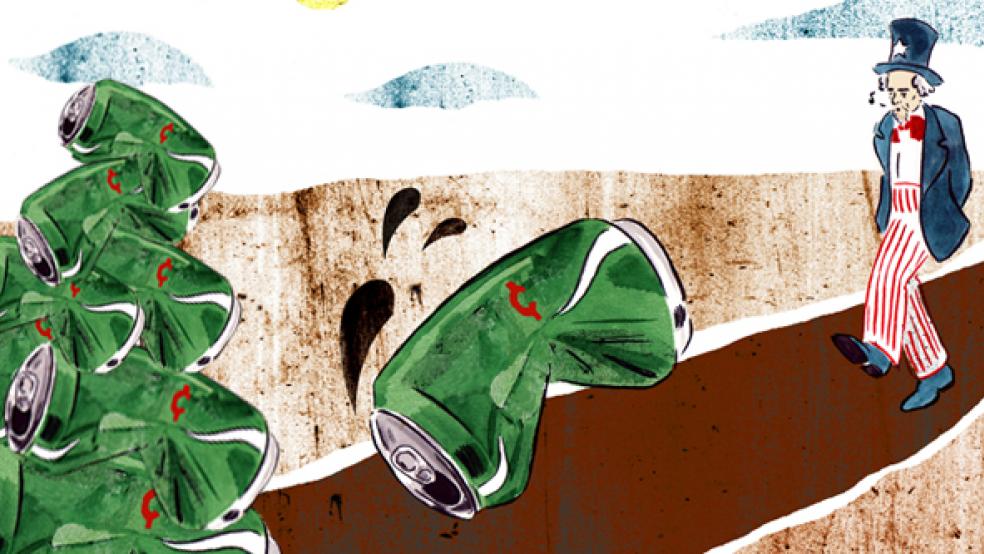Dodging tough decisions before an election is a time honored practice among politicians, but the 112th Congress and President Obama may have elevated the concept of “kicking the can down the road” to an art form.
With the 2012 elections looming, Republican and Democratic congressional leaders and Obama have repeatedly slipped the political noose on controversial issues ranging from Medicare, Social Security and tax reform to farm subsidies, energy production and air pollution control to avoid offending key constituencies.
“You’re talking about a period in which the ability to legislate with any kinds of bipartisan support is very seriously diminished because, of course, this next year is going to be all about messaging – all about positioning yourself for the presidential election, both on the part of the president and the Republican nominee, but also members of Congress,” Ross Baker, a Rutgers University political scientist, told The Fiscal Times today. “It’s sort of like people living in certain kinds of primitive societies who kind of make every decision based upon astrological signs, but in this case the astrological signs are the polls and the polls are basically dictating to people in government what positions they should be taking.”
Monday’s collapse of the bipartisan “Super Committee’s” efforts to negotiate a $1.2 trillion deficit reduction package is the latest and most dramatic case in point. Rather than exposing their parties to attacks from the left and the right by compromising on an array of entitlement and defense cuts and tax increases, the 12 members of the Committee waved the white flag. By declaring defeat, they postponed any further serious deficit reduction until 2013, when $1.2 trillion of automatic cuts in the Pentagon budget and domestic programs will automatically begin to kick in.
Committee could not
agree on a budget plan
to submit to Congress.
In the process, the committee, chaired by Sen. Patty Murray, D-Wash., and Jeb Hensarling, R-Tex., failed to come to grips with a handful of other politically thorny issues that need to be resolved before the end of the year, including important payroll tax and unemployment benefit issues. Last year’s payroll tax cut saved the average U.S. household more than $900, according to the Tax Policy Center. But because the wobbly-kneed Super Committee could not agree on a budget plan to submit to Congress, the tax cut, as well as unemployment benefits, could expire at the end of the year.
After being sharply criticized for his handling of last summer’s near disastrous debt ceiling negotiations, Obama steered clear of the Super Committee talks, and was traveling in Asia during the final nine days of deliberations. Upon his return to Washington, the president chided the Super Committee members for missing their deadline. But Obama and his lieutenants have put off numerous politically risky decisions until after the election, particularly on the environmental and energy front.
FIVE BIG CANS THAT HAVE BEEN KICKED DOWN THE ROAD
- Tougher ozone limits, a lung-irritating pollutant that contributes to the illness and death of many Americans. The decision came amid complaints from industry and business groups who warned the new smog limits would be the most expensive rule in U.S. history. Obama ordered the Environmental Protection Agency to wait until 2013 for the regularly scheduled review of the ozone limit before granting final approval. The federal agency already had delayed a final decision four times in the past year.
- The 1,700-mile Keystone XL transcontinental pipeline for transporting oil extracted from Canadian tar sands to crude oil refineries along the Gulf Coast. Obama backed a State Department plan to study alternative routes for the pipeline – a concession to environmental groups and Nebraska officials concerned that the pipeline might contaminate underground water reservoirs. The oil industry complained that Obama’s decision announced earlier this month might jeopardize the project and cost the economy roughly 20,000 construction jobs.
- Implementation of an EPA rule that would have strengthened air pollution standards for incineration at major industrial facilities. The postponement in May followed a series of deferred rulings involving coal ash management, mountain top removal mining and a proposed reconsideration of stricter regulations for on cement manufacturing facilities. The rule was designed to reduce harmful air pollution emissions by industrial facilities including fine particle, ozone, mercury, hazardous air pollutants and dioxin.
- Shale gas drilling in Ohio has been delayed for up to six months by cancelling a mineral lease auction for Wayne National Forest. The recent move was made in deference to environmentalists who called for a study of the effects of a technique known as hydraulic fracturing.
- Imposing a 15-cent per tree fee on Christmas tree growers aimed at raising money for a Christmas tree industry promotional campaign – similar to industry advertising to promote milk, beef and cotton. The administration backed down after the conservative Heritage Foundation posted a blog blasting Obama’s alleged “Christmas tree tax” and warning that it would be passed on to consumers.
The raft of presidential delays underscores the political challenge of trying to placate environmentalists and the energy industry simultaneously. Obama’s decision to delay a decision on a route for the proposed Keystone XL pipeline came shortly after environmentalists staged a protest demonstration outside the White House.


